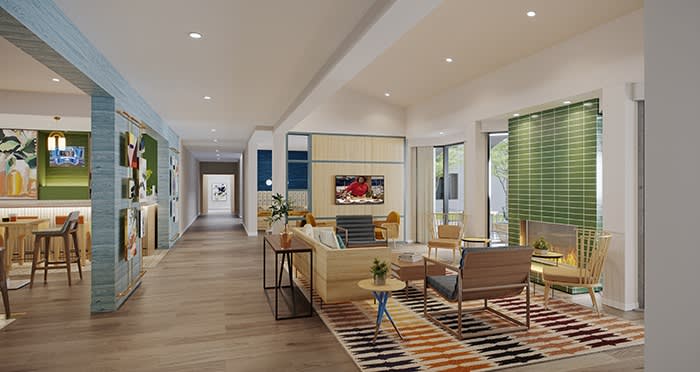Who the heck would want to own a hotel now?
One September afternoon in 2020, Vera Manoukian received a call from a recruiter on behalf of a hotel chain making ambitious expansion plans. Would she, the caller inquired, want to be chief operating officer of Sonesta International as it ramped up from just 58 properties to more than 1,100, with upwards of 100,000 rooms?
Manoukian, a 30-year veteran of the hotel business who was then head of the Hilton brand, was intrigued. It was a grim time to be in hospitality: stringent lockdowns and international travel bans had decimated demand, and a vaccine still seemed far off. At Hilton, echoing lobbies and empty rooms testified to a 90 per cent drop in revenue, suspended dividends and mass furloughs.
Manoukian, 58, is a fast walker and a faster talker. Leaving Lebanon for the US as a teenager, she studied chemistry in college and stumbled into hospitality after seeing a “help wanted” sign. She rose rapidly, becoming Sheraton’s youngest hotel general manager at the age of 29. By 2020, she had worked for huge players including Starwood and Hilton, and watched as the industry bounced back from 9/11, the financial crisis, recession and more. But to be planning a post-pandemic expansion in the depths of the pandemic was something else.
There was only one problem: “What is a Sonesta?” she asked.
Founded in 1937, Massachusetts-based Sonesta once owned luxury hotels such as New York’s Plaza and Washington’s Mayflower. When I was in college in the 1980s, the group’s pyramid-shaped Cambridge hotel was a hot place to take visiting parents (and their credit cards) for brunch. But as large hotel chains transformed into managers and marketers of stables of carefully delineated brands ranging from posh to bare bones, Sonesta withered. In 2011, it was acquired by a little-known real estate investor and had, since then, flown so far under the radar that it was practically invisible.
Sonesta, Manoukian realised, was a unique chance to redefine post-pandemic travel on behalf of a very different kind of hotel company. At a time when industry profits were down more than 95 per cent and the biggest US hoteliers were on the defensive, the real estate moguls who owned Sonesta planned to steal a march. It was already becoming clear that domestic travel would recover much faster than far-flung trips, and the spread of remote working had the potential to fundamentally reshape business travel. Here also was a chance to rethink both the business model and the principles of hotel design in ways that would help coax germaphobes back out on the road. Shocking some of her former colleagues, Manoukian became Sonesta’s COO in November 2020. The chance to start from scratch was too unusual to pass up.
World-shaking events aside, the hotel business isn’t what it used to be. Over the past couple of decades, the biggest chains have steadily gobbled up smaller ones, while simultaneously selling off their actual hotel buildings to concentrate almost exclusively on marketing and operations. The biggest, Marriott, has 30 different brands encompassing more than 8,000 hotels. But you can count the number of properties this nearly $60bn company owns on your fingers and toes — most were spun out into another company in 1993, and the rest were sold off. Same story at Hilton and InterContinental Hotels Group; each owns or directly leases less than 1 per cent of its properties. The rest are mostly split between high-profile locations the companies manage for outside investors and a much larger and growing group of hotels that is owned and operated by franchisees, who must comply with brand standards on decor, service and staffing.
That means when you walk into a brand-name hotel today, no matter whether your room costs $50 or $500, chances are it is the hospitality equivalent of a McDonald’s. In the US, just 5 per cent of hotels are owned or directly managed by chains, while 53 per cent are franchises, up from 47 per cent a decade ago, according to hospitality data provider STR. As it did for so many industries, the pandemic laid bare diverging agendas. While the big hotel brands drew public attention and sympathy to the hospitality industry’s struggles, they sloughed off much of the financial pain on to owner-operators who still had to maintain buildings and pay staff.



Sonesta’s expansion has its genesis in an earlier crisis where these power dynamics played out similarly. The company is owned by The RMR Group, a Boston-based real…
Read More: Who the heck would want to own a hotel now?

